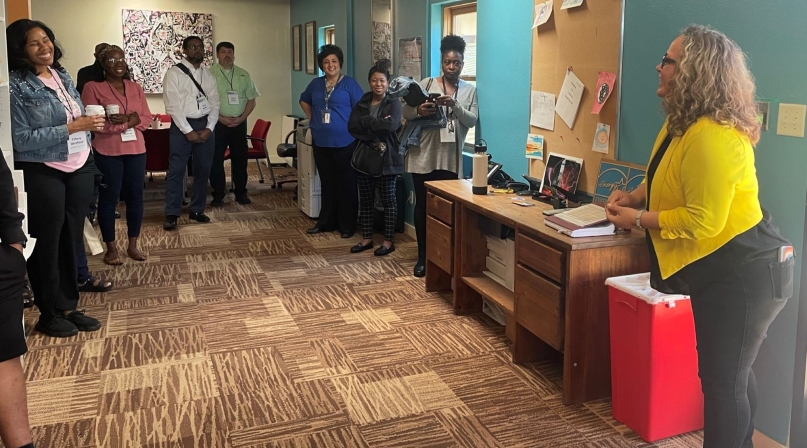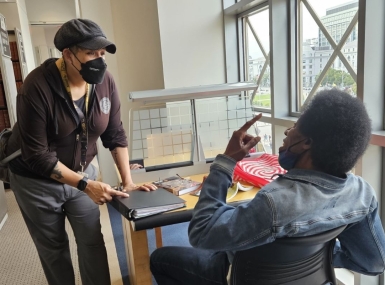Bernalillo County empowers youth through community-based services

Key Takeaways
The challenges of youth homelessness, mental health and violence underscore the urgent need for dedicated resources and community support to address systemic issues affecting vulnerable youth populations.
In 2014, 69% of Bernalillo County, N.M. residents voted for a gross sales tax to fund a behavioral health care system. The levy generates approximately $20 million annually, funding the county’s behavioral health initiative, which the county administers, while empowering community partners to leverage organization expertise and resources.
New Day Youth & Family Services is one of those partners. Executive Director Brooke Tafoya opened the New Day Drop-In Center with the flexible funding provided by Bernalillo County. In 2018, the county awarded roughly $150,000 to New Day to kickstart the drop-in center.
The center provides services including space to rest, computer access, financial literacy, life skills classes and coaching, bus passes, resource navigations, peer support, direct referrals and workshops It also offers a permanent address for voting and postal purposes.
Tafoya noted that the initial funding was only part of the center’s success, which has changed with the times.
“If we hadn’t gotten the building, I don’t know if we’d have the drop-in center program anymore,” she said. “That’s how important having these spaces [is].”
Amid the challenges of COVID-19 and the drop-in center’s initial location — within a small community center catering to elementary-aged youth — New Day looked for space better suited to transitional-age youth at risk of involvement in the justice system. The behavioral health initiative allocated $750,000 in additional capital funds for New Day to acquire and renovate a new drop-in center.
Tafoya looked for a site close to public transportation, but also “off the beaten path, so youth have more of a retreat and a protective feeling,” she said. Young people said they felt safer accessing services that are specifically for them, rather than adapted adult services, and separate from adults. The building was designed to feel unique, special and homey, far removed from a clinical setting like a doctor’s office or institutional office space.
At the end of Fiscal Year 2023, compared to the year prior, the number of drop-in center individual visitors increased by 20%, total visits increased by 70% and average visits per person grew by 60%. Tafoya credited the behavioral health initiative as a key contributor to this success, as the funding did not designate specific programming and provided the flexibility to remodel the facility to meet the basic needs and services that the youth desperately need. With the initiative’s funding, the drop-in center can offer essential services like showers, laundry, a kitchen and lockers for youth to safely store personal items.
The success story of New Day’s drop-in center served as an example for collaborative community action during NACo’s County Juvenile Justice Innovation Network (CJJIN) Peer Exchange on April 24. The Office of Juvenile Justice and Delinquency Prevention, Office of Justice Programs, U.S. Department of Justice funded the CJJIN cohort. The CJJIN cohort of five county teams of cross-system leaders are developing strategic action plans to similarly establish a continuum of care for youth in their communities. Cumberland County, N.C. Judge Tiffany M. Whitfield affirmed the power of collaborative solutions.
“CJJIN challenged us to be great by creating solutions together with a purpose,” she said.
Featured Initiative
County Juvenile Justice Innovation Network
The County Juvenile Justice Innovation Network works to enhance counties' capacity to meet the needs of youth in local juvenile justice systems. Teams are participate in local visits and develop plans for program and policy changes to improve youth outcomes.

Related News
King County school offers students a route to sobriety
The Interagency Recovery Campus, funded in part by King County, Wash. Behavioral Health and Recovery, fosters an environment to support students' paths to sobriety.

Library program offers path to employment, stability
San Francisco County, Calif. Library Health and Safety Associates provide care and support to the unhoused patrons who congregate at the library — monitoring for overdoses and connecting them with county services such as showers, food or shelter.

